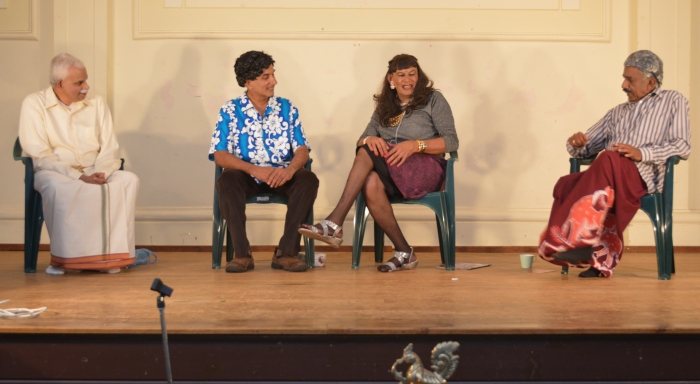
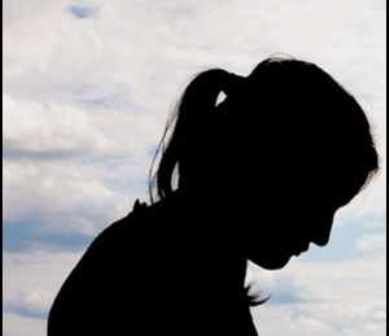
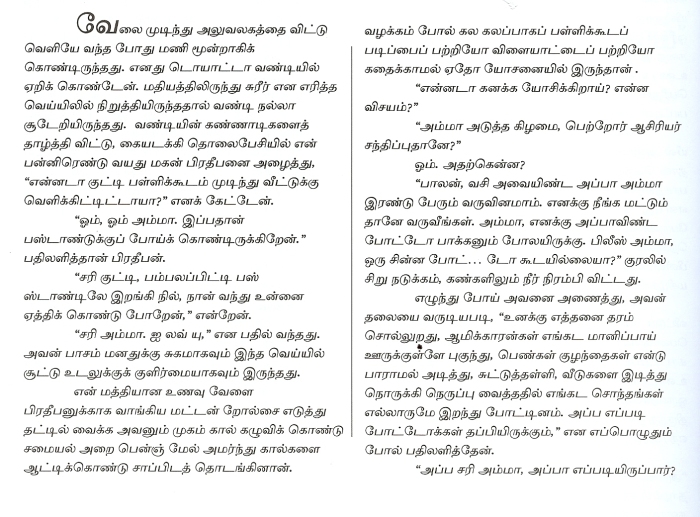
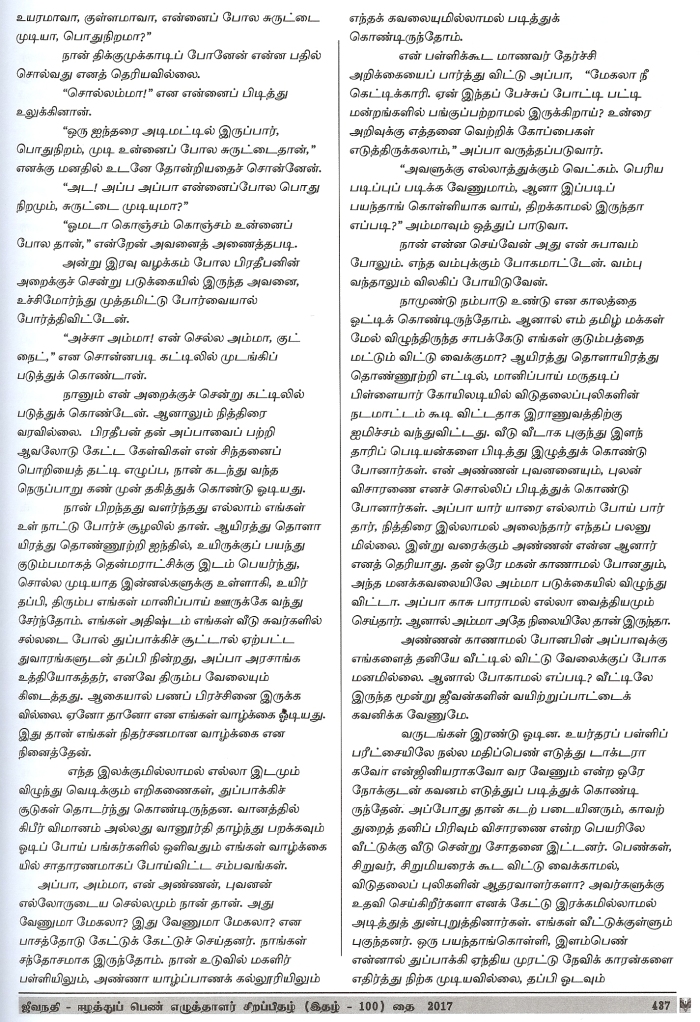
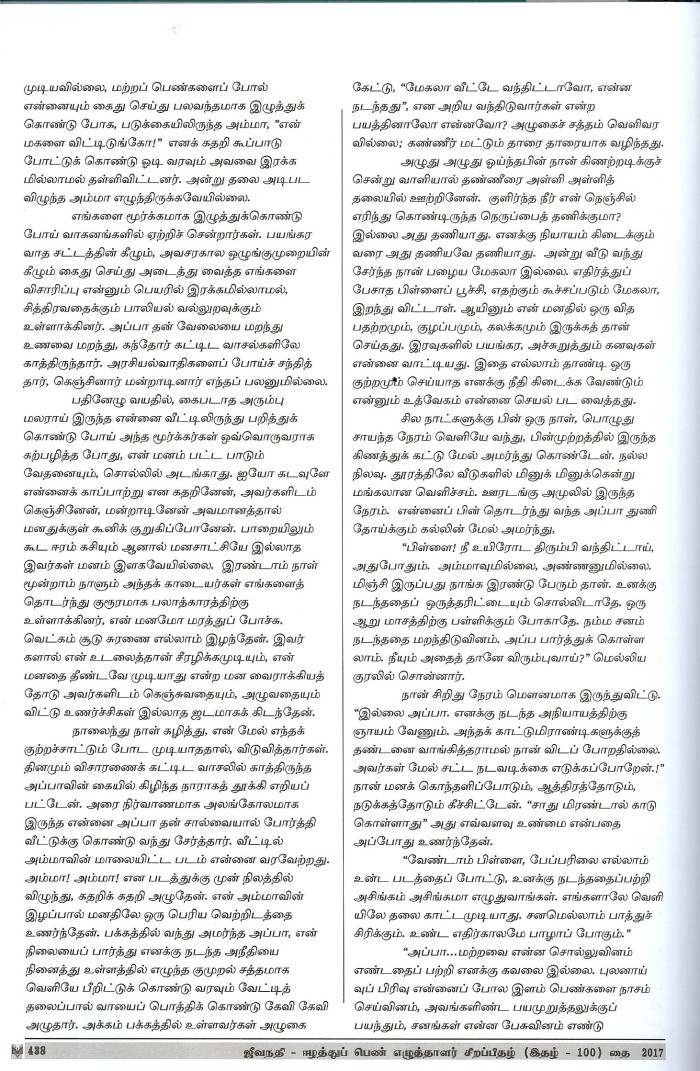
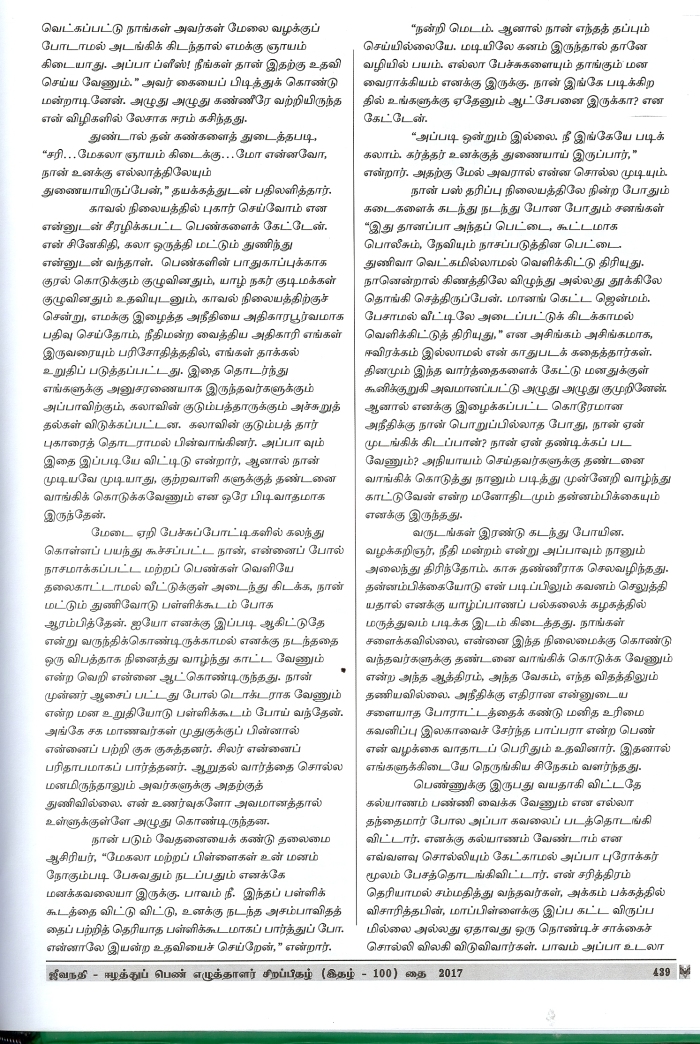
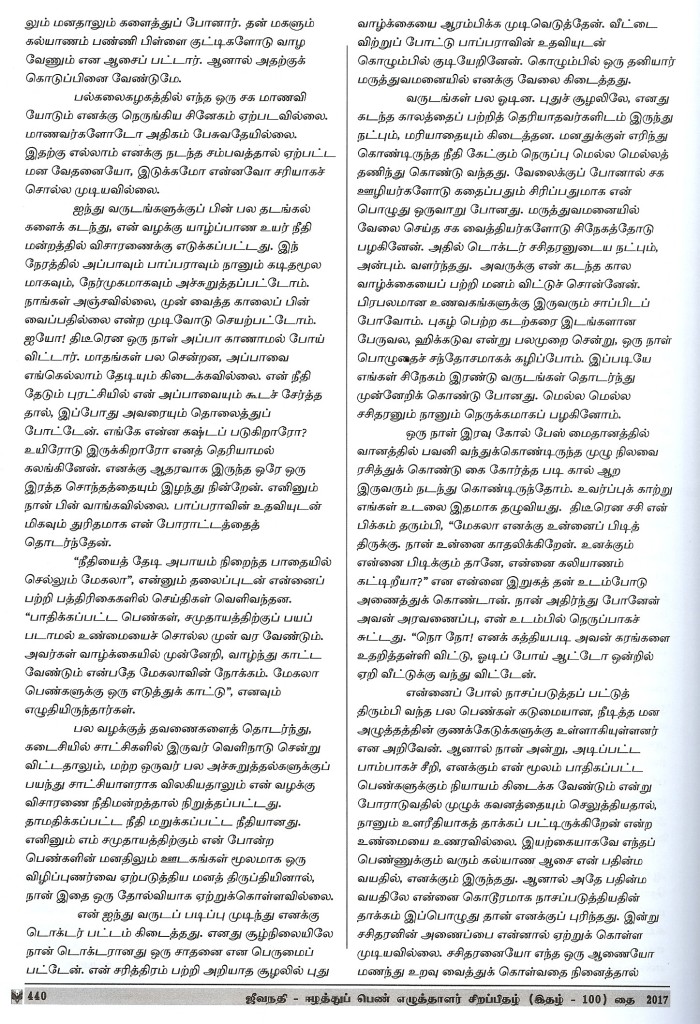
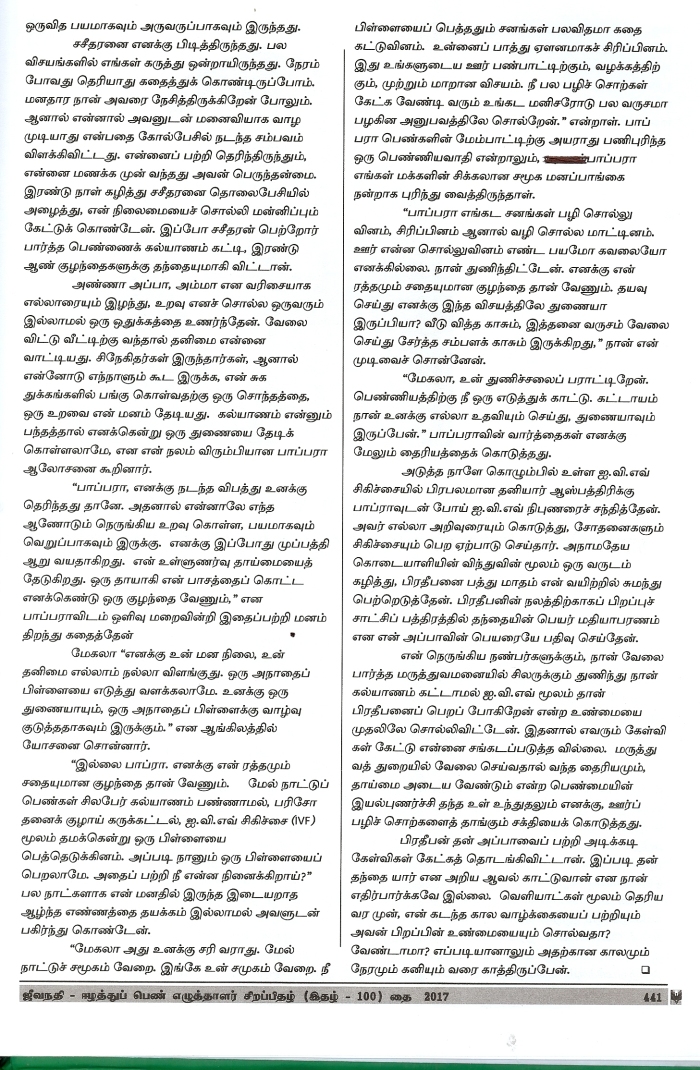
‘Cherished Love’ Canadian Tamil Mirror

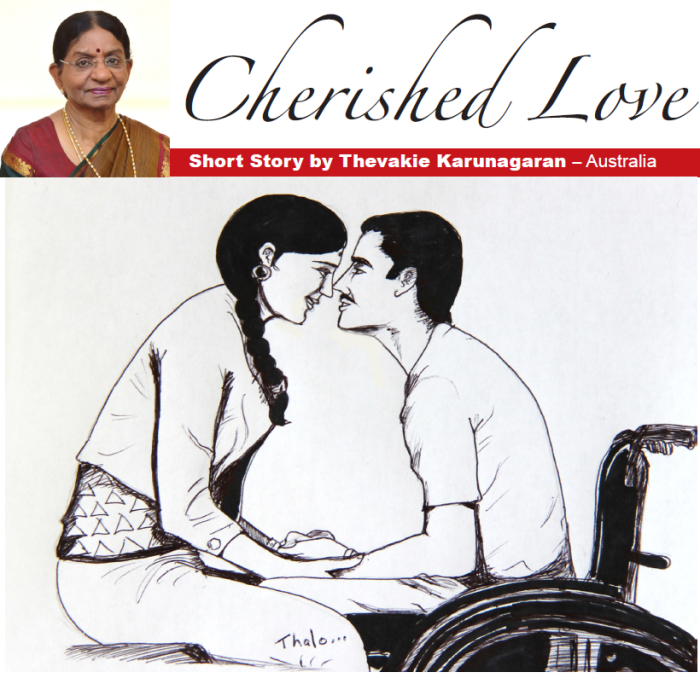
The fasten seatbelt sign flashed. “Welcome aboard Singapore Airlines, this is your captain speaking.” I returned to the present. I was returning to my homeland in the North of Sri Lanka for the first time since migrating to Australia in 1995, after being the victim of a massive human exodus, unparalleled in the history of Sri Lanka. The cabin rumbled as the aircraft ascended. I eased back into the seat. My mind rolled back to a previous time, images flashed in and out and made me shudder.
After the anti-Tamil racial holocaust of July 1983 in Sri Lanka, the Tamil’s democratic agitation for their rights changed to armed struggle, led by a group called, ‘Liberation Tigers of Tamil Eelam’ (LTTE). I was born into this civil war and grew up in Jaffna, North Sri Lanka. The LTTE were our soldiers, and the Sri Lankan army from the South was our enemy. In a country where hatred and violence had taken root; the thunder of artillery fire had become a part of our life.
On October 30,1995 the civil war was at its height, and the LTTE announced over loudspeakers, “The Sri Lankan troops are advancing on Jaffna. We’re determined to resist and defend our land. The streets of Jaffna will soon be a battlefield. Please evacuate to Vanni under our control.”
The warning brought on a confused exodus of our terror-stricken people. Almost the entire population of Jaffna stepped out on the road, taking only the bare essentials. They dragged their children, the sick, and the elderly with them. In a matter of hours, Jaffna became a ghost town.
My father who never wanted to leave his much cherished ancestral home spoke, “Well, we will have to go too. Your lives are more precious to me than this house.”
My thoughts were only about my dear Santhru, who had accompanied his family to a wedding in the next town. It was heart-wrenching to be suddenly forced to leave your own home. Worse still for me to leave my Santhru; not knowing if I would ever see him again. It tore my heart out. But I, a sixteen-year-old girl, was helpless.
“Mallika! Don’t just stand there. Pick up your sister and follow us.” Terror rang out in my mother’s high-pitched voice.
My father put his palms together and prayed. “Oh! Lord Muruga, you’re our Saviour,” his lips quivered. It was past ten O’clock at night. October rain fell in a drizzle. My father pushed his bike with my brother Thana, seated on it. I carried my sister, Verni in one hand and followed my mother like a puppet. Our little procession joined the slow human flood.
Like rivulets joining and swelling the river, people flowed in from the side streets to the main human river, leading towards Vanni. Bicycles and motorbikes bumped and entangled. Our procession extended for miles; it took hours to move a few hundred yards. I heard the wail of the lost children, calling for their mothers, and they, in turn, calling out for their children. Above all these echoed the call for God’s mercy. I’ve read about the human exodus of the Jews from Germany, during the Second World War. Here, I was witnessing one first hand.
The drizzle turned into a downpour and the rain lashed us, cooling our sweaty bodies, but this didn’t interfere with our desperate flight. Far away I heard the missiles being fired, but my thoughts were only about Santhuru. Each time I closed my eyes, I saw his lean silhouette standing at the water’s edge.
After two days of travel on foot, we reached Chavakacheri, a major town under the control of the LTTE. People scrambled for a spot; we were lucky to get a space in a school building. It was a crowded, unhygienic existence. Cholera, diarrhoea, and hepatitis spread among the people. Food and clean water were running low. The Red Cross and the LTTE did what they could, but said, “Medicine supplies have been cut off by the Army.”
My father was one of those affected by cholera. His predicament brought on a wave of panic in the pit of my stomach. More than one hundred people died in the epidemic, including my Father. It was ghastly. Mother banged her head on the wall with grief and anger crying out, “Oh! God, what am I going to do now?” Tears streamed down her haggard face. She grabbed my hand, squeezed it tight and fainted several times. In between, she would moan and cry. My brother and sister fell on my father’s body calling out “Appa!….. Appa!” I could not hold back my wails and tears.
We buried our father by the wayside; an unmarked grave. The refugee camp echoed with moaning and wailing. Far away we heard aerial bombardment and fighting going on between the LTTE and the Army. Verni and Thana huddled in a corner their bodies trembling. I was scared, yet gathered them close and comforted them. We saw the wounded being carried into the camp and die without medical aid.
Mother could not come to terms with the fate that had befallen us. As the eldest in the family, I felt responsible. My teenage dreams ended on that day.
“Amma! We must get to Colombo,” my voice trembled with urgency. Mother looked at me vaguely. I shook her, “We need money?” Silently she handed me the money and jewels that she had with her.
We walked to the next town and crossed over by boat to Visvamadu. The money helped us to hitchhike on trucks and vans. My trust in God returned when we reached my uncle’s house safely. We stood at our uncle’s front door in our dirty clothes and ruffled dusty hair; for a moment he could not recognise us. I fell into his arms saying,
“Periappa, we had to leave Jaffna. Appa is dead.” I sobbed on his shoulder, as he held me.
“Mallika, we’re hearing of the evacuation only now. My poor brother.” I felt his body tremble. I had lost a father, he a brother.
Periappa’s family’s love and warm welcome brought us closer to a normal life again. I thought of the thousands of refugees left behind, and felt a pang of remorse.I rang Ravi Uncle in Sydney and told him everything. “Mother is too distressed to make decisions. I don’t know what to do, I don’t know!” I sobbed.
“Malli, don’t worry. You must be brave. I will sponsor you,” he said confidently.
The future looked promising. Within six months we got our migration visa to Australia. On arriving in Sydney, we stayed with Uncle Ravi, later moved into an apartment. We were classified as refugees, and the Australian government assisted us in many ways. I am thankful up to this day for their compassion and assistance. I joined grade eleven at School and Thana went into grade six.
Memories of Santhuru haunted me. There were nights when tears lulled me to sleep. But, I felt it my duty to look after my mother and siblings; so made a supreme effort on my final examination. I performed well and was offered a place at the NSW University to study Medicine. Years passed swiftly, I qualified and started work at Westmead hospital.
In 2002 the Sri Lankan Government and the LTTE signed a peace accord. Tamils living abroad went to visit their relatives. I too yearned to see Santhru and my homeland. Vanni, the area under the LTTE control was without sufficient medical staff. Non-Government Organisations in Australia, called for doctors, dentists, and nurses to volunteer to work in Vanni. This was my chance to work in my homeland, and also find out about Santhru. I offered my services immediately.
Mother did not want me to go, but I was adamant. “I know how you feel Amma. But things have changed. The civil war has come to an end.”
“Yet nothing has been resolved between the two parties,” she responded.
“Yes, but as a staff of an NGO, we’ll be looked after. Don’t worry Amma.” I felt her rapid breath as she embraced me in a desperate, loving farewell. I kissed her sunken cheeks.
“What would you like to drink?” The flight attendant’s question brought me back to the present, where I could serve my people and maybe find my Santhru.
*********
My uncle Welcomed me at the Colombo International Airport. Embracing me he said, “You are the picture of your father.” Moisture glistened in his eyes. I bent down and touched his feet for his blessings.
The next day our Australian team left for Vanni by road with Alahan, our guide. After much bumping and heaving over potholes, we reached Vavuniya. The words, ‘My body is to my land and my soul to Tamil,’ welcomed us in white lettering on a red billboard. The words touched my soul.
When we reached the Army checkpoint at Omanthai, they wanted to know our destination. We said we were heading to Jaffna, as instructed by our guide. Our bags were checked and we passed through. While we proceeded to the Liberation Tigers checkpoint our guide
Cherished Love
Short Story by Thevakie Karunagaran – Australia
Contd on page – 00
pointed out the warning billboards of landmines and said we were passing through ‘no mans’ land.
At the LTTE security post, we gave details of our NGO and requested a “Visa” to enter their territory. All our medical equipment was checked and two hours later were issued visas with the Tamil Tiger logo. The territory from Omanthai to Elephant pass was called Vanni. It was under the control of the LTTE. Around two in the afternoon we reached Kilinochi, the central town of Vanni. My stomach rumbled with hunger. The heat was unbearable, my clothes clung to my body and the town smelled of dusty, humid air.
After lunch we proceeded to the Tamil Eelam Health office; we were welcomed warmly. The next day we started work at the Ponnampalam hospital. This was run by the LTTE Health personnel.
Taking a day off, I went to Jaffna to find out about Santhru, which was beyond Elephant Pass, and under the control of the Sri Lankan Army. On my way, I saw the damage done by the civil war. Heaps of broken down bricks were the only signs that a house or school building once existed there. The Palmyra palm tree; an icon of Jaffna, stood against the skyline with its fronds burnt by the aerial shelling. The streets and the land all along were deserted. My heart cried within. ‘Where are the people who once lived here? Were they alive? Or like me, caring only for their lives left — forgetting their motherland?
I reached my village in Jaffna. Our house, stood there with half its walls crumbled and the rest ridden with bullet holes. I inquired from the neighbours about Santhru’s family and drew a blank. The next day, I checked orphanages and refugee camps, yet there was no trace of Santhru.
In November, on Tamil Heroes Remembrance Day, Alahan took me to one of the cemeteries. Families were gathered around the immaculately kept three thousand graves. As the sun went down; candles were lit. They flickered in the darkness. Hushed silence prevailed except for the occasional sobs. No band. No singing. When the candles burnt out the mourners walked out. The silence echoed deep sorrow for the dead heroes, whose spirit they believe lives on for Tamil Land. I walked out speechless.
Another day the health authorities took me to see the home run for the soldiers wounded during the war. Eight young men welcomed us with warm smiles. They were seated in wheelchairs and a sarong covered them from waist to ankle. I had braced myself for the ordeal of meeting these maimed young men, but I did not know what to say to them. Before I spoke, they asked me questions. It was so easy to talk to them. They knew Alahan well so they teased him, cracked jokes and laughed. Their inner contentment was reflected in their shining eyes and in their smiles. Happiness rang through their laughter. I sat there gazing at them. Their black, oiled hair shone. White teeth flashed in their dark, brown faces. Muscles bulged through their T-shirts. These are the young men who fought courageously; saved our land and self-respect. And in return here they are paralysed below the waist, and dependent on others. No warm sweet promises of love to muse on. Yet, I couldn’t see any regret, or remorse on their faces, or in attitude.
Alahan took me over to where some men were working on computers.
“Venthan, meet Dr Mallika.” Alahan spoke to the man who was seated in a wheelchair, engrossed with his work on the computer. The man turned and looked our way. The tea cup in my hand crashed to the floor. It was my beloved Santhru. My heart pounded. I caught his hand and whispered, ”Santhru it’s Mallika.”
Surprise and happiness flooded his face. I turned to Alahan, “Can I speak to Santhru privately?” Alahan escorted us into the office room and left. I sat on the edge of a chair and taking his hands in mine whispered, “Santhru my love.” Our tears brimmed over and rained on our hands; our tears spoke for us.
I told him how we ended up in Australia. Santhru’s eyes glistened with unshed tears as he spoke, “When we evacuated Jaffna I lost my parents and siblings in the aerial bombardment and I was left alone in a war-torn country. That’s when I decided to join the LTTE movement; fight for our freedom and die with dignity. Here I am; wounded in the ‘Ceaseless Waves Three’ battle. No regrets.” A victorious smile illuminated his face.
I held his face in my hands, and whispered, “Santhru dear, I love you very much. Marry me.” I looked deep down into his eyes; no more the innocent boy’s eyes that I knew.
With tear-tinged vision, Santhru spoke firmly. ”Malli, thank you. You are being very generous. But what happiness are you going to have married to me? A paraplegic. … ”
“Santhru! But …?”
He placed his finger on my lips and continued, “I want you to qualify as a surgeon. Marry a man who will be able to help you in your profession. Don’t ruin your life by marrying me. I’m very happy here.”
“Santhru you are the man I loved and still love. My love for you is divine, beyond desire. I want to be with you. There will be no other man in my life. I will live with your memory as I have been these past years. I’ve longed for this day. God has been merciful. Santhru, please say yes.”
Unchecked tears ran down my cheeks and lips. Time seemed to crawl. His eyes met mine. His love for me burning in them. “Yes, we’ll get married,” he whispered.
For the Tamil Mirror
Thevakie Karunagaran’s English stories have been published in Sydney magazines and her short stories in Tamil have been published in ‘Kalaimagal’, Thinakural and Veerakesari. Her collection of 12 short stories titled ‘Anbin Aazham’ was published in Sydney in 2014. Recently she won the third place in the short story competition conducted by ‘Gnanam’, Tamil Magazine.
Contd from page – 00
Cherished Love
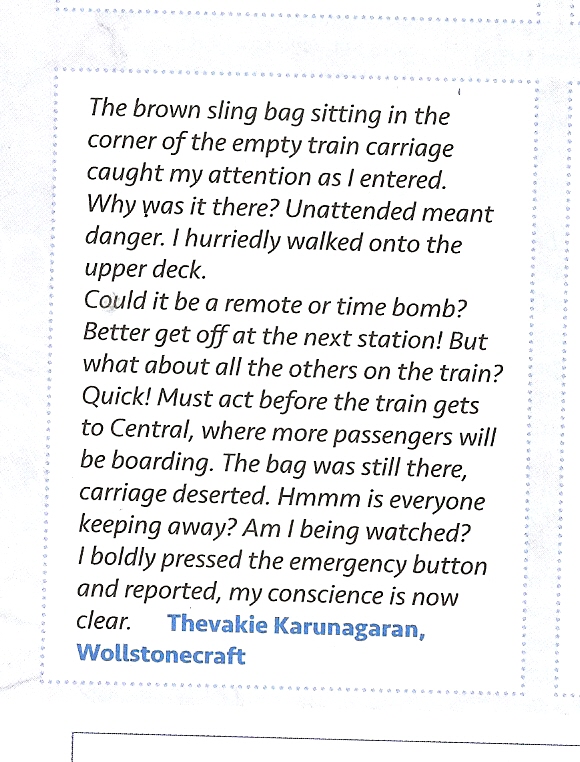
My 100 Word Short Story which has been shortlisted for a competition
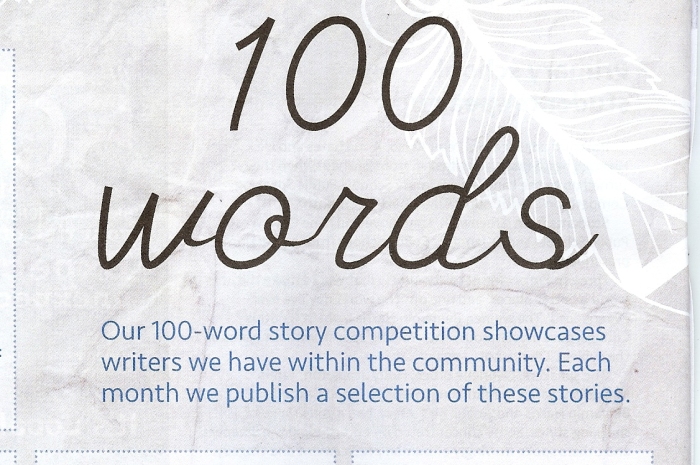
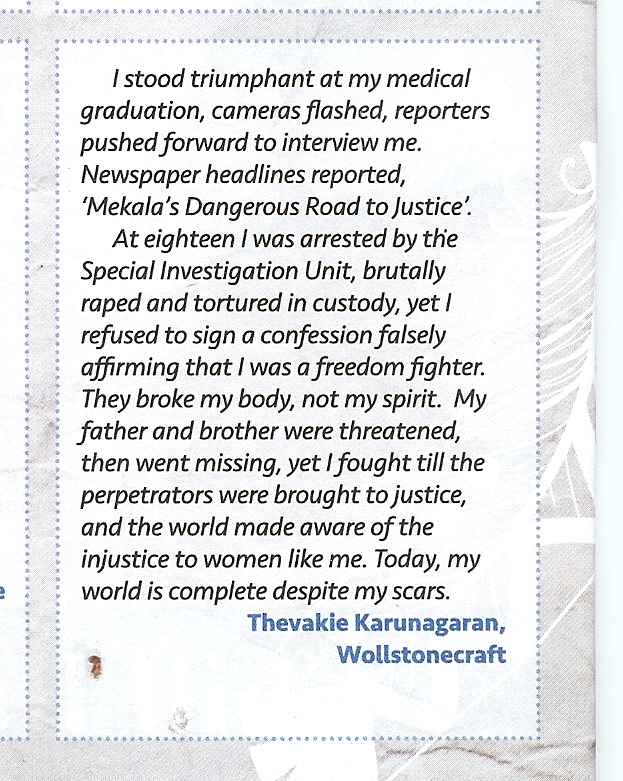
குறு நாவல் ‘மாதங்கி’
http://tamil.pratilipi.com/search?q=Thevakie+Karunagaran
Click on the above link to read the above Novelette
Ceaseless Waves & First Prize
Click on this link to read the above two stories:
https://www.smashwords.com/books/search?query=Thevakie+Karunagaran
’தினக்குரல்’ 5/06/2016 இல் வெளி வந்த எனது சிறு கதை’
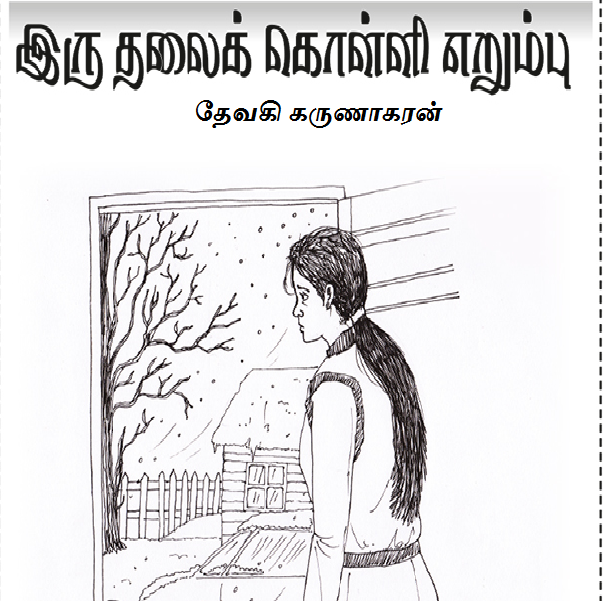
இரண்டு நாட்களுக்கு முன் வைத்திய கன்ஃபொரன்சுக்காக நைஜீரியாவின் தலை நகர் லேகொசுக்குச் சென்ற என் கணவர் இன்றைக்கு நாலு மணிக்கெல்லாம் வந்திருக்க வேணும் . இப்போது எட்டு மணியாகியும் வரவில்லையே!! திறந்திருந்த வாசற் கதவுக்கு நடப்பதும் பாதுகாப்பு மெஷ் கதவினூடாக வெளியே எட்டிப் பார்ப்பதும்,; திரும்பி வந்து அமர்வதுமாக இருந்த என் மனதில் பல எண்ண அலைகள் வந்து மோதின. இந்த ஆபிரிக்கா கண்டத்திலே அவருக்கு ஏற்படக் கூடிய ஆபத்துகளை நினைத்தும் உடல் நடுங்கி வியர்த்தது.
ஆயிரத்து தொளாயிரத்து எண்பத்தெட்டாம் ஆண்டு. நைஜீரியாவின் கடுனா பிரதேசத்தில் நாம் வாழ்ந்துக் கொண்டிருந்தோம். எமது தாய் நாட்டில் நடந்த போரின் தாக்கத்தால் எம் போன்ற பல தமிழர் உயிருக்குப் பயந்து, பிள்ளைகளின் எதிர்காலத்தையும் நினைத்து ஊரை விட்டுப் பல நாடுகளிற்கு வெளியேறி விட்டார்கள். ‘திரை கடலோடி திரவியம் தேடு’ என்ற நிலைமை போய் இப்போ ‘உயிருக்குப் பயந்து ஊரை விட்டு ஓடு’ என்ற நிலை ஆகிவிட்டது. தமிழரின் விதிக்கு அமைய என் கணவரும் கடுனா மாநிலப் போதனா வைத்தியசாலையில் வேலை பெற்றுக் கொண்டு, எம்மையும் கூடவே அழைத்துக் கொண்டு நைஜீரியா வந்து விட்டார்.
திரும்பவும் வாசற் கதவடிக்குச் சென்று மெஷ் கதவின் மேல் மூக்கை அழுத்தியபடி வாகனம் ஏதாவது வருகிறதா என பார்த்தேன். இது மார்கழி மாதம்,; ஹமட்டான் காலம். பனியுடன் சஹாரா பாலைவனத்து தூசியும் சேர்ந்த புகார் மூன்று அடிக்கு மேல் எதுவுமே தெளிவாகத் தெரியாமல் மூடியது. உற்று உற்றுப் பார்த்தேன் வீட்டைக் கடந்து ரோட்டிலே மோட்டார் வண்டிகளின் வெளிச்சம் தூசி படிந்த பனி மண்டலத்தின் ஊடாக ஒளி இழந்து மங்கலாக மின்னியது. ‘ஊம்’ பெருமூச்சு விட்டபடி, லேசாக கண்களில் துளிர்ந்த நீரை துடைத்தபடி திரும்பவும் சோபாவில் வந்து அமர்ந்தேன். கடிகாரத்தைப் பார்த்தேன், இரவு ஒன்பது மணி. தலைமை, புரொஃப்சர் அடிக்கேயையோ, நண்பர்களையோ விசாரிப்பதற்கு அல்லது உதவி கேட்பதற்கு அந்தக் காலத்தில் கடூனாவில் வீட்டுக்கு வீடு தொலைபேசி இருக்கவில்லை. கையடக்க தொலை பேசியைப் பாவனைக்கு வராத காலம் அது.
“அம்மா! அப்பா எப்ப வருவார்……? பசிக்குது,” எனச் சிணுங்கிக் கொண்டு வந்து என்னை கட்டிப் பிடித்தாள் சின்னவள் வருணி.
” ஐயோ வருணி! அப்பா இன்னும் வரல்லை என்ற கவலையிலே சாப்பாட்டை மறந்திட்டேன். வாங்கோ சாப்பிடுவோம்,” என மூத்தவள், கவிதாவையும் அழைத்து, அவர்களுக்கு உணவைப் பரிமாறி நானும் கொஞ்சம் ஏதோ வாயில் போட்டுக் கொண்டேன்.
“பத்து மணியாகிறது நாளைக்குப் பள்ளிக்கூடம். போய் படுங்கோ,” என அவளையும் மூத்தவள் கவிதாவையும் படுக்கைக்கு அனுப்பி வைத்தேன். அடுத்த நாள் காலை ஸ்டுவேர்ட் (steward) வந்து கழுவ வேண்டிய பாத்திரங்களுக்கு தண்ணீர் ஊற்றி வைத்து, குசினியையும் ஒதுக்கி விட்டு, ஒரு புத்தகத்தை கையில் எடுத்துக்கொண்டு அமர்ந்தேன். ஆனால் என மனமோ பலதையும் நினைத்து கலங்கியது.
எங்கள் ஊரிலே நடக்கிற போரிலிருந்து தப்புவதற்காக இங்கே வந்தோம். ஆனால் இப்போ ஏன் வந்தோம் என்று இருக்கிறது. இக்கரை மாட்டுக்கு அக்கரை பச்சை என்ற பழ மொழி எமக்கு பொருந்துமோ என்னவோ. நல்ல சம்பளம் அதிலே பாதியை ஊருக்கு அனுப்பலாம், குடியிருப்பதற்கு தளபாடங்களோடு பெரிய வீடு. பாவிப்புக்கு வாகனம், முக்கியமாக எங்களை, தமிழரை குறி வைத்து தாக்க ஒருவருமில்லை. ஆனால்…. எங்கட ஊரைப்போல வருமா…..? இங்கே எங்கட சொந்தங்கள் இல்லையே. இங்கு வாழும் இனத்தின் பழக்க வழக்கங்கள் எமக்கு ஒத்துப் போக வேணுமே.
வடக்கு நைஜீரியாவின் கானோ சர்வதேச விமான நிலையத்தில் முதன் முதலில் வந்திறங்கிய போது எங்களிடம் நிறைய எதிர்பார்ப்புகள் இருந்தன. விமான நிலையத்தின் கட்டிடத்தை விட்டு வெளியே வரவும் எங்களை முதலில் அன்போடு சூழ்ந்து, கொஞ்சி குத்தி வரவேற்ற பெருமை அந்த நாட்டு நுளம்புகளுக்குத் தான் சேரும். ’’ வசந்தி முன் காப்பாக தடுப்பு மருந்து எடுத்திருக்கிறோம் அல்லது அதோ கதி தான்,” என்றார் என் கணவர், சபேசன்.
இருநூற்றி முப்பது கிலோ மைலுக்கு அப்பால் இருந்த கடூனா மாநிலத்திற்கு எங்களை அழைத்துச் செல்ல என் கணவர் வேலை பெற்றிருந்த, அகமது பெலோ ஆஸ்பத்திரி அதிகாரி ஒருவர் வாகனத்துடன் வந்திருந்;தார். எனக்கு ஒரே குதூகலம். புது இடம், புது மனிதர், புது அனுபவங்கள் என பல எதிர்பார்ப்புகளுடன் சந்தோஷமாக குடும்பத்துடன் வண்டியில் ஏறி அமர்ந்து கொண்டேன்.
வாகனமும் வேகமாக ஓடிக்கொண்டிருந்தது. நைஜீரியாவின் இயற்கை காட்சிக்ளை ரசிப்போம் என ஆவலோடு வெளியே பார்த்தேன். ஆனால் அங்கே வழி நெடுக விபத்துக்குள்ளான, வாகனங்கள் குவிந்து குவிந்து கிடப்பதைத் தான் கண்டேன். ”விபத்துக்குள்ளான வாகனங்களை ஏன் அப்புறப்படுத்தாமல் இங்கேயே விட்டிருக்கிறார்கள்,” என வண்டி ஓட்டுநரிடம் என் கணவர் கேட்டார். அதற்கு அவர், ”அதுவா இங்கே ரோட்டுகளில் வண்டி ஓட்டும் வேகத்திற்கு கட்டுப்பாடு இல்லை. அதோட இரட்டை வண்டிப் போக்கு வரத்து வசதி இல்லாததால் இந்த விபத்துக்கள் நடக்கிறது, இந்த விபத்துக்குள்ளான வண்டிகளைக் கண்டாவது மனிசர் வண்டியைக் கவனமாக ஓட்டுவார்கள் என்பதற்காகத்தான்……ஹா அல்ஹா!!” என தோளைக் குலுக்கியபடி சர்வ சாதாரணமாக பதிலளித்தான் ஓட்டுநர். நான் முன்னால் எட்டி வண்டியின் ஸ்பீடோ மீட்டரை பார்த்தேன். நூற்றி ஐம்பது காட்டியது. வண்டியின் குளிர் ஊட்டி போட்டிருந்தாலும் எனக்குப் பயத்தில் உடம்பு பட்டென்று வியர்த்தது. முன்னால் அமர்ந்திருந்த கணவர் சபேசனின் முதுகில் தட்டினேன். திரும்பிப் பார்த்த அவர் கண்களிலும் பயம் தெரிந்தது. வண்டி ஓட்டுநரிடம் ’’ஸ்லோ டவுன்,” என மெதுவாகச் சொன்னார். அவனும் ”நோ ப்ரோப்லம்” என்று சொல்லி விட்டு அதே விசையில் வாகனத்தை ஓட்டினான்.. என்னையறியாமல் எனக்குத் தெரிந்த தேவாரங்களைப் பாடத் தொடங்கினேன், மகள்மாரும் என்னுடன் சேர்ந்து பாடினார்கள். கடவுள் அருளால் அன்று பத்திரமாக கடூனா வந்து சேர்ந்தோம். அந்த நாட்டில் கால் பதித்த முதல் அனுபவமே அப்படி.
நைஜீரியா இனத்தவர்கள் எம் இனத்தவர்களை விட தோற்றத்தில் உயரமாகவும் பருமனாகவும் இருந்தார்கள். சுருங்க சொன்னால் அந்த நாட்டின் உயிரினங்கள் எல்லாமே பெரிதாகவே இருந்தன. நுளம்பு, பல்லி. ஓணான், அட்டை, ஈ, கரப்பான் பூச்சி எல்லாமே தான். இதனால் தான் என்னவோ; ஆறு மாதத்திற்கு முன் இரண்டு மாத லீவில் கொழும்பு பண்டாரநாயக்க சர்வதேச விமான நிலையத்தில் போய் இறங்கிய வேளை, கவிதாவும் வருணியும்,; ”என்னம்மா ’கலிவர் போன லிலிப்புட்டுக்கு’ வந்திட்டோமோ?” என ஆச்சரியத்துடன் கேட்டார்கள். இங்கு பெரும்பாலோரின் நடத்தையில் செருக்கும் இறுமாப்பும் தொனித்தது. அதை அரசாங்க அலுவலகங்களிலும் தனியார் அலுவலகங்களிலும் வேலை பார்ப்பவர்களின் நடத்தையில் உணர்ந்தேன். ஒரு நாள் காலியாக இருந்த இடத்தில் ஒரு வெள்ளைக்கார பெண்மணி தனது காரை நிறுத்தவும், பின்னால் வந்த அந்த ஊர்க் காரன் இறங்கி வந்து, ”காரை எடு, இது என்ட ஊர். நீ முதல் வந்தாலும் இங்கே காரை நிறுத்த எனக்குத் தான் உரிமை உண்டு!” எனக் கத்தினான். அந்த அம்மாவும் பாவம் எதுவுமே பேசாது தன் வாகனத்தை நிறுத்திய இடத்திலிருந்து ஓட்டிக் கொண்டு போய் விட்டார். இது மட்டுமா பட்டப் பகலிலே துப்பாக்கியைக் காட்டி கொள்ளை அடிப்பார்கள். மறுத்தால் அல்லது எதிர்த்தால் சுட்டுத்தள்ளவும் தயங்க மாட்டார்கள். அப்படிப்பட்ட நாடு நைஜீரியா
கடிகாரத்தைத் திரும்பவும் பார்த்தேன், பன்னிரெண்டு மணி. இந்த நடு சாமத்திலே யாரைப் போய்ப் பார்ப்பது, எப்படிப் போவது. படுக்கைக்குப் போகுமுன் பல்லைத் துலக்கி, முகத்தைக் கழுவி, சாமிக்கு விளக்கேற்றினேன். ”கடவுளே என் கணவருக்கு எந்த ஆபத்தும் வராமல் பார்த்துக் கொள்ளப்பா,” என மனதார வேண்டினேன். கணவரைப் பற்றிய கவலையில் படுக்கையில் புரண்டு கொண்டு கிடந்தேன். நான் கண்ணயர்ந்திருக்க வேணும், ’அல்லாஹு அக்பர்’, பள்ளிவாசலின் தொழுகை அழைப்புக் கேட்டு திடுக்கிட்டு விழித்துக் கொண்டேன்.
குளித்து, சேலையை உடுத்திக் கொண்டேன். மகள் மாரின் அறைக் கதவைத் தட்டி அவர்களை எழுப்பிவிட்டு காலை உணவை தயாரித்தேன். மத்தியானம் இரண்டு மணிக்கெல்லாம் பிள்ளைகள் வீடு வந்து சேர்ந்து விடுவார்கள். ஆகையால் அவர்களுக்குப் பழமும் பிஸ்கட்டும் அவர் அவர் பெட்டிகளில் போட்டுக் கொடுத்தேன். மகள்மாரைப் பள்ளிக்கூடம் அழைத்துச் செல்லும் காரில் நானும் ஏறி ஓட்டுநரிடம் பள்ளிக்கூடம் போகும் முன் என்னை ஆஸ்பத்திரிக்கு கூட்டிக் கொண்டு போகச் சொல்லுவோமா? அங்கே போனால் டொக்டர் அடிக்கேவிடம் இவர் இன்னும் வந்து சேராததைச் சொல்லலாம்……… ஐ ஐயோ! இதனால் பிள்ளைகள் பள்ளிகூடத்திற்கு நேரத்திற்குப் போய் சேர மாட்டார்கள். ஒரு நாள் பிந்திப்போனதால் தண்டனையாக பள்ளிக்கூடம் விட்ட பின் தோட்டத்துப் புல்லை, வளைந்த வாளால் வெட்ட வைத்திருக்கிறார்கள். பாவம் சின்னவள் உள்ளங்கை கண்டிச் சிவந்துப் போய், நோ தாங்க மாட்டாது அழுது கொண்டு வீடு வந்து சேர்ந்தாள். அடுத்த தரம் பிந்தி வந்தால் புளாலாவாள் (சவுக்கு) அடி கொடுக்கப்படும் என எச்சரித்திருக்கினம். ”அம்மா நான் இங்குள்ள சவுக்கைப் பார்த்திருக்கிறேன், அதுக்கு இரண்டு நாக்கு,” அழுகைக்கிடையே குரல் நடுங்க மகள் சொன்னது நினைவுக்கு வந்தது. ஆகையால் அந்த எண்ணத்தை விட்டு விட்டு அவர்களை நேரத்திற்கு பள்ளிக்கூடம் அனுப்பி வைத்தேன்.
அவர்கள் போன கையோடு வீட்டைப் பூட்டிக் கொண்டு, ஒரு டக்சியை மறித்து ஏறிப் போகலாம் என்று ரோட்டுக் கரையிலே போய் நின்றேன். சேலை அணிந்த ஒரு இந்தியப் பெண் ரோட்டுக் கரையில் நிற்பதைக் கண்டு வாகனத்திலிருந்தவர்கள் வினோதமாக எட்டிப் பார்த்தார்கள். எனக்குத் சங்கடமாகவும் கூச்சமாகவும் இருந்தது. சேலைத் தலைப்பால் தோளை போர்த்துக் கொண்டேன். இந்த ஊரிலே என் கணவரில்லாமல் வெளியே எங்கும் போவதில்லை. கார் ஓட்டப் பழகியிருந்தால் இப்படி வந்து நின்றிருக்கத் தேவையில்லை. என்னையே கடிந்து கொண்டேன். ஒன்று, இரண்டு ஓட்டுநர் வாகனத்தை நிறுத்தி, ’எங்கே போக வேணும்? நான் காரிலே கொண்டு போய் விடவா?’ என அக்கறையாக ஆங்கிலத்திலே கேட்டார்கள். ’வேண்டாம். நா கொடே,” என என் மனப் பயத்தைக் கட்டுப்படுத்திக் கொண்டு நன்றியைத் தெரிவித்தேன். ஒரு அரை மணித்தியாலத்திற்குப் பின் டக்சி வரவும், மறித்து ஏறிக் கொண்டு, ஆஸ்பத்திரி விலாசத்தை கொடுத்தேன். இங்கு டக்சிகளில் மீட்டர் இல்லை. ஏற முன் எவ்வளவு என கேட்டுத் தான் ஏற வேணும். ஆஸ்பத்திரி முன்னால் இறங்கினதும் அவன் கேட்ட இருபது நயராவை கொடுத்து விட்டு விறு விறுவென உள்ளே நடந்தேன்.
வாசலில் நின்ற கூர்க்கா, அந்த ஊர் வழக்கம் போல,”சனு மடம்! நீங்கள் சுகமா, கணவர் சுகமா, பிள்ளைகள் சுகமா, ஊரிலே எல்லாரும் சுகமா?” என அடுக்கிக் கொண்டுப் போனான். நான் குறுக்கிடாவிட்டால், வீட்டில் வளர்க்கும் கால் நடை, பறவைகள் சுகமா என இழுத்துக் கொண்டு போயிருப்பான். நான் குறுக்கிட்டு, ”குட். நா கொடே,” என பதிலளித்து விட்டு தாமதியாது டொக்டர் அடிக்கேயை தேடிப்போய் கணவர் வீடு வந்து சேராத விசயத்தைச் சொன்னேன்.
”நேற்றே வீடு வந்து சேர்ந்திருக்க வேணுமே,” என்றவர் தொலை பேசியை எடுத்து விமான நிலைய அதிகாரி்களுடன் கதைத்தார். பின்பு லேகொசில் என் கணவர் தங்கியிருந்த ஹோட்டல் மனேஜருடன் கதைத்து விட்டு, “வசந்தி உங்களுடைய கணவர், சபேசன் லேகொசில் பிளேன் ஏற வில்லையாம். ஹோட்டலில் இருந்து செக்கவுட் பண்ணவுமில்லையாம். ஆகையால் அவர் இன்னும் லேகொசில் தான் இருக்கிறார். கவலைப்பட வேண்டாம் அவரைத் தேடிப்பிடித்திடலாம்,” என்றவர் ஆறுதலாக என் தோளை அழுத்தினார்.
”வாங்கோ பொலிஸ் ஸ்டேசன் போகலாம்,” என்றவர் தன் காரில் என்னை ஏற்றிக் கொண்டு, முதலில் எங்கள் வீட்டுக்குப் போய் என் கணவருடைய புகைப் படம் ஒன்றை எடுத்துக் கொண்டு கடூனா போலீஸ் ஸ்டேசனுக்கு போனோம். அங்கே நின்று, டொக்டர் அடிக்கே, லேகொஸ் போலீசுடனும் பேசினார். கடைசியில் “கவலைப்பட வேண்டாம் வசந்தி, அவரை தேடிக் கண்டுப் பிடித்து விடுவார்கள்.” என்றார். எனக்கு உலகமே இருண்டு விட்ட உணர்வு. அவரின் உயிருக்கு ஏதேனும் ஆபத்தோ என நினைத்ததும் அழுகை பீறிக்கொண்டு வந்தது. ’’நிச்சயம் அவருக்கு ஒன்றும் ஆகியிராது. உங்களுக்காக நான் கர்த்தரைப் பிரார்த்திக்கிறேன்” என்று கூறி என்னை வீட்டில் இறக்கி விட்டார்.
கதவைத் திறந்து கொண்டு வீட்டுக்குள் போன நான் நேரே சாமி அறைக்குப் போய், ’கடவுளே என் கணவருக்கு எந்த ஆபத்தும் வராமல் காப்பாற்று. இந்த இருண்ட கண்டத்திற்கு வந்த எங்களின் வாழ்க்கையையும் இருட்டாக்கி விடாதே.’ வேண்டிகொண்டு கண்ணைத் திறக்கவும் நேரே கண்ணனின் சிலை கண்ணில் பட்டது. வீட்டு வேலைகளை செய்கிற ஸ்டுவர்ட் கண்ணன் சிலையைப் பார்த்து இது நாங்கள் கும்பிடும் ஃபொலானி கடவுள், எனக் கூறியது நினைவுக்கு வந்தது. என் கணவரைக் காப்பாத்து எனக் கண்ணனிடம் வேண்டிக் கொண்டேன்.
பசியோடு பிள்ளைகள் வரப் போகிறார்களே என பட படவென ஒரு பருப்புக் கறியை வைத்து, ப்ரீசரில் இருந்த பாணையும் வெளியே எடுத்து வைத்தேன். சரியா இரண்டு மணிக்கு, ’’அம்மா! அப்பா வந்திட்டாரா” என கேட்டபடி உள்ளே வந்தார்கள் என் பெண்கள். அவர்களோடு காரில் வந்த பக்கத்துத் தெரு, சிநேகிதி கிரிஸ்டி, ”வசந்தி, ஆன்டி அங்கில் இன்னுமா வரல்லே?… நான் அம்மாவை கூட்டிக் கொண்டு வாரேன்,” எனப் புத்தக பையோடு தன் வீட்டுக்கு ஓடினாள். வாசலில் என்னைப் பார்த்ததும், பக்கத்து வீட்டு கரீமா,
”வசந்தி!!” என அழைத்தபடி, வீடுகளுக்கிடையே வேலி இல்லாதபடியால் கட கடவென புற் தரையைக் கடந்து வந்தார். கூடவே நைஜீரிய பொலீஸ் உடையில் ஒருவரும் வந்தார்.
”உங்கட கணவரைப் பற்றி கேள்விப்பட்டனான். ஏதாவது உதவி வேணுமா? இவர் மூசா எனது சகோதரன், ஒரே அப்பா, வேறு அம்மா. பொலீஸ் இலகாவிலே வேலை.” என்றார் ஆங்கிலத்தில்.
”ஹலோ, மூசா எப்படி இருக்கிரீங்கள்? சந்தித்ததில் சந்தோசம். கரீமா, இப்பதான் டொக்டர் அடிக்கேயோடு பொலீஸ் ஸ்டெசன் போட்டு வாறேன். கேட்டதற்கு நன்றி. அன்றைக்கு ஒருவரை உங்க வீட்டிலே சந்தித்தேனே அவர் யார்?”
”அவரா அவரும் சகோதரன் தான் ஒரே அப்பா ஒரே அம்மா,” என்றார்.
முஸ்லீம் நாடென்றபடியால் கடூனா மாநிலத்தில் பலமண முறை வழக்கத்தில் இருந்தது. சில மாதங்களுக்கு முன் வருணியின் பிறந்த நாள் கொண்டாட்டத்திற்கு கணவருக்குத் தெரிந்த அல்ஹாஜியையும் அவருடைய பிள்ளைகளையும் அழைத்திருந்தோம். அவர் காரிலும், அவருடைய பிள்ளைகள் ஒரு இருபத்தி ஐந்து பேர் இருக்கும், பஸ்சிலும் வந்திருந்தார்கள். வந்திருந்த எல்லோருடைய பெயர்களும் தனக்குத் தெரியாது என்று மூத்தவர்களுடைய பெயரை மட்டும் கூறி அறிமுகம் செய்து வைத்தார். . எனக்கு இது ஒரு விநோதமான விசயமாகவிருந்தது.
சிறிது நேரத்திலே கிரிஸ்டியின் பெற்றோர் தோசை சாம்பாருடன் வந்து சேர்ந்தார்கள். கிரிஸ்டியின் அப்பா மரியதாஸ் காரிலே போய் எங்கள் நெருங்கிய நண்பர் மருதநாயகத்திடம் சொல்ல அவர் எங்கள் மற்ற நண்பர்களிடம் சொல்ல எல்லோரும் எங்கள் வீட்டுக்கு வந்து விட்டார்கள். துக்க வீடு போல எல்லோரும் கூடிக் கூடி அமர்ந்திருந்தார்கள். என் கணவருக்கு என்ன ஆகியிருக்குமோ என நினைத்து அழுது கொண்டிருந்த எனக்கு சிலர் ஆறுதல் சொன்னார்கள். சிலர் கூடிக் கூடி கதைப்பதும், கிசு கிசுப்பதும் என் காதில் விழுந்தது.
”சிரீலங்காவிலே இருந்து வந்த நல்லையாவோ நாகேந்திரமோ பெயர் சரியா நினைப்பில்லை இப்படித்தான் லேகொஸ் போனாராம் அதற்குப் பிறகு இன்று மட்டும் அவர் திரும்பி வரவே இல்லையாம்.”
“ஓம் ஓம் கேள்விப்பட்டனான். இந்த நாட்டிலே ஒரு குலத்தின் தலைவர் இறந்து போனால் அவரைப் புதைக்கேக்கே நூறு மனிதத் தலைகள் சேர்த்துத் தான் புதைப்பார்களாம். இவரையும் கடத்தி தலைக்காகச் சாக்கொல்லி இருப்பாங்களோ!”
”அப்படி இருக்கமுடியாது. புதைக்கும் தலை இந்த நாட்டவனாக இருக்க வேணும். அதோட இந்த இருபதாம் நூற்றாண்டிலே அப்படி நடக்க வாய்ப்பில்லை. சும்மா விசர் கதை கதையாதேங்கோ. வசந்தின்ட காதிலே விழுந்தா…………? கதைத்தது போதும்.” என ஒருவர் அந்தக் கதைக்கு முற்றுப்புள்ளி வைத்தார்.
இப்போ என்ன ஆகியிருக்குமோ என்ற நினைப்புப் போய், அவரைக் சாக்காட்டிப் போட்டாங்களோ, என்ற கவலை என்னைப் பீடித்துக் கொண்டது. ஓவென அழவும் தொடங்கி விட்டேன்.
இரவு பத்து மணிக்கு மேலாகி விட்டது வந்தவர்கள் எல்லோரும் தங்கள் தங்கள் வீட்டுக்குப் புறப்பட்டுப் போய்விட்டார்கள். கிரிஸ்டியின் அம்மா மட்டும் எங்களுக்குத் துணையாக வீட்டிலே படுத்துக் கொண்டா. எனக்கு நித்திரையே வரவில்லை. இரவு நெடுக காயத்திரி மந்திரத்தை உச்சரித்தபடி இருந்தேன். குளித்து, நெற்றியில் திருநீறு இடவும் காலை நிசப்தத்தின் ஊடாக பள்ளி வாசலின் தொழுகை ஒலி கேட்டது.
காலை ஒன்பது மணிபோல டொக்டர் அடிகே முகமெல்லாம் மகிழ்ச்சி பரவ உள்ளே வந்தார். ” வசந்தி, உங்கள் கணவர் சுகமாக இருக்கிறார். மதியம் ஃப்லைட் எடுத்து வந்து சேர்ந்திடுவார்.” என்றார்.
எனக்குள் சந்தோசமும் நிம்மதியும் பொங்கி வழிந்தது. அவர் கையைப் பிடித்து. ”தாங்யு தாங்யு” என என் நன்றியைத் தெரிவித்தேன்.
”நோ வொரிஸ் நான் ஆஸ்பத்திரிக்கு போயிட்டு காரை அனுப்புகிறேன் நீங்கள் கடூனா விமான நிலையத்திற்குப் போய் உங்க கணவரை அழைத்து வரலாம். இந்தாங்கோ ஃப்லைட் டீடெயில்ஸ்.” என ஒரு கடுதாசித் துண்டை என் கையில் கொடுத்தார்.
விமான நிலையத்தில் என் கணவர் வெளியே வரவும், பிள்ளைகளும் நானும் ஓடிச் சென்று அவரைக் கட்டி அணைத்து முத்தமிட்டோம். அவரும் கண்கள் கலங்க எங்களை அணைத்துக் கொஞ்சினார். நான் அழுதே விட்டேன்.
காரில் ஏறி புறப்படவும் என் கணவரின் மணிக்கட்டில் இருந்த கட்டுகளைக் கவனித்தேன். “என்னப்பா கையிலே? ஏன் வரவேண்டிய நாளிலே வரவில்லை?” கேள்விகளை ஒன்றின் பின் ஒன்றாகக் கேட்டேன். இதுவரை எதுவுமே சொல்லாதிருந்தவர் அணை உடைந்து வெள்ளம் பெருக்கெடுப்பது போல, ”ஐயோ வசந்தி நாங்கள் ஏன் தான் இந்த ஊருக்கு வந்தோமோ! நான் சாவின் விளிம்பை எட்டிப் பார்த்து விட்டு வந்திருக்கிறேன். ஒரு இன்சுரன்ஸ் கூட எடுக்காமல் இருந்திருக்கிறேனே!!”
”ஐ ஐயோ என்னப்பா நடந்தது? சொல்லுங்கோ,” என அவர் தோளைப் பிடித்து உலுக்கினேன்.
”வசந்தி, இப்படியும் நடக்கும் என்று நான் நினைக்கவேயில்லை. கன்ஃபெரன்செல்லாம் முடித்து விட்டு ஒரு டக்சியை மறித்து ஹோட்டல் ஹில்டென் போகச்சொல்லி விட்டு பின் சீட்டில் ஏறி, அப்பாடா என சாய்ந்து கொண்டேன். டக்சி நிற்கவும் ஹோட்டல் வந்து விட்டது என இறங்கப் போகவும் இரண்டு காப்பிலிகள் ஒவ்வொரு பக்கமாக டக்சியில் ஏறி விட்டார்கள். என் மூக்கு மேல் துணியை வைத்து அமுக்கவும் நான் உதறித் தள்ளப் பார்த்தேன், முடியவில்லை. அதற்குப் பிறகு என்ன நடந்தது என்று தெரியாது. கண்முழித்துப் பார்த்த போது ஒரு இருட்டு அறையில் கையும் காலும் கட்டப் பட்டு தரையிலே கிடந்தேன். காலையா மத்தியானமா என்று கூடத் தெரியவில்லை. கை வொட்ச்சையும் எடுத்திட்டாங்கள். மேலுக்கு ஒரு பக்கத்து சுவரில் உயரத்தில் இருந்த சிறு யன்னல் வழியே கொஞ்சம் வெளிச்சம் உள்ளே சிந்திக் கொண்டிருந்தது. கைக்கட்டை ஒரு கூர் தகட்டிலே உரசி, தேய்த்துக் கழட்டப் பார்த்தேன் அப்பதான் இந்தக் காயம்,’’ என மணிக்கட்டைத் தடவிக்கொண்டார். ”எப்படி இங்கே வந்து மாட்டிக் கொண்டேன் என தெரியாமல், ’யார் அங்கே என’ ஆங்கிலத்திலே பெலமாக கத்தினேன். அறைக் கதவைத் திறந்து கொண்டு, ’உஷ் ஷ்’ என்றபடி உள்ளே வந்த ஒரு காப்பிலி, ’சேர் சத்தம் போடாதேங்கோ. என்னைத் தெரியில்லையா?’ என ஆங்கிலத்திலே கேட்டான். நான் திகைத்து நிற்க, ’சேர் ஆறு மாததிற்கு முன் நான் ஓட்டி வந்த மோட்டார் வண்டி அடிபட்டுச் சாகக் கிடந்த எனக்கு ’ஒ நெகடிவ்’ என்ற அரிய வகை இரத்தம் கிடைக்கவில்லை. உங்கட இரத்தத்தை குடுத்து, அறுவைச் சிகிச்சையும் செய்து காப்பாத்தினீங்க. என் பெயர் முக்தா, நினைவில்லையா?” தாழ்ந்த குரலில் கதைத்துக் கொண்டே என் கை, கால் கட்டுகளை அவிழ்த்து விட்டு, ”சேர் வாங்கோ” என அவசரமாக கூட்டிக் கொண்டுப் போய் ஒரு காரிலே ஏத்தி ஹில்டன் ஹோட்டல் விலாசத்தைக் குடுத்தான். போகும் வழியில், தான் பணக்காரர்களைக் கடத்தி அவர்களிடமிருந்து பணம் பறிக்கிற கும்பலைச் சேர்ந்தவன் என்றும் சக கூட்டாளிகள் என்னைப் பிடித்து அறையில் அடைத்தபின் தான் என்னைக் கண்டதாகவும், கூட்டாளிகளுக்குத் தெரியாமல் என்னைத் தப்ப வைத்ததாகவும். உடனேயே கடூனா போகச் சொல்லி ஹோட்டலில் இறக்கிவிட்டான். என்னைக் கண்டதும் ஹோட்டல் மனேஜர் பொலீஸ் காவலுடன் என்னை விமான நிலையத்திற்கு அனுப்பி வைத்தார். ஐயோ வசந்தி எப்படியான பயங்கர அனுபவம் நினைத்தாலே உடம்பு நடுங்குகிறது.”
பிள்ளைகளும் நானும் அவரை அணைத்து ” பத்திரமாக வந்து சேர்ந்திட்டீங்க, அதுவே போதும்,” என அவரை சமாதானப்படுத்தினோம்.
ஊருக்குத் திரும்பிப் போவோமென்றால் வட மாகாணத்திலே போரின் நிலைமை அவ்வேளை மோசமாகிக் கொண்டிருந்தது. போனால் நிம்மதியாக வாழ முடியுமா? இரு தலைக் கொள்ளி எறும்பின் நிலை தான் எங்கள் நைஜீரியா வாழ்வு.
International Women’s Day 2016 Sydney Nadappu
தமிழ் மூத்த பிரசைகள் சங்கம் N S W, ஏப்ரல் 28, வியாழக்கிழமை மங்கையர் தினத்தை மிகவும் விமரிசையாகக் கொண்டாடினார்கள். அன்று நான் எழுதி இயக்கிய நகைச்சுவை நாடகம் ’சிட்னி நடப்பு’ அரங்கேற்றப் பட்டது.
Click on the arrow twice to play.
சிட்னி நடப்பு
’திண்டாடும் பண்பாடு’ ‘Thindaadum Panpaadu’ Short Story
SBS Australia broadcasted the above story on 11 October, 2015. Please listen to the audio version below.
SBS அவுஸ்திரேயாவின் வானொலியில் ஒக்டோபர் 11, 2015 ஒலிபரப்பான எனது மற்றும் ஓர் சிறு கதையை ஒலி வடிவில் கீழே கேட்கலாம்.
‘Kathala Cultureah’ நாடகம் ’காதலா கல்ச்சரா’
எனது புத்தக வெளியீட்டை தொடர்ந்து நகைச் சுவை நாடகம் இடம் பெற்றது. மதுரா மஹாதேவா பின்வருமாறு விமர்சித்திருக்கிறார்.
- இருபது நேர இடைவேளையின் பின் கட்டுடை நாடகக் குழுவினரின் ‘காதலா culture ஆ’ எனும் நகைச்சுவை நாடகம் இடம் பெற்றது. இன் நாடகத்தை எழுதியவர் திருமதி தேவகி கருணாகரன் என்பது இங்கே குறிப் பிடத்தக்கது. இந்த நாடகத்தின் கரு, பத்து வருடங்களுக்கு முன்பு ஆஸ்திரேலியாவில் குடிபுகுந்து வந்த எம்மவர் சிலர் எப்படி தமது வாழ்க்கை நடைமுறைகளை மாற்றிக் கொண்டுள்ளார்கள் என்பதே ஆகும். இதில் நடித்த நடிகர்கள் அனைவரும் தேவகியின் ஊரான கட்டுடையை சேர்ந்தவர்கள் ஆவார்கள். இவர்கள் தமது சிறு பிராயத்தில் பல நகைச் சுவை நாடகங்களை தமது வீட்டிலேயே ஒன்று கூடி நடித்து மகிழ்வார்களாம். இதில் நடித்தவர்களில் எனது மனத்தைக் கவர்ந்த பாத்திரம் விசாலாட்சியாக நடித்த சுரேன் விஸ்வலிங்கம். இவர் ஏற்று நடித்த பெண் வேடத்தில் மிகவும் சிறப்பாக நடித்திருந்தார். சிவப்பிரகாசம் வேடத்தில் திரு ஸ்ரீநிவாசன் ரங்கநாதன் நடித்திருந்தார். இவரும் மிகவும் திறமையாக நடித்திருந்தார். சுரேன் மற்றும் ஸ்ரீநிவாசன் இருவரின் நடிப்பும் மிகவும் திறமையாகவும் எதேர்ச்சையாகவும் இருந்தது

- குஞ்சிதபாதமாக திரு நந்தபாலன் துரைசிங்கம் அவர்கள் நடித்திருந்தார்கள். இவர் அண்மையில் இலங்கையில் இருந்து வந்தவர் போன்றே அவரின் பாத்திரத்திற்கு ஏற்ப நடித்திருந்தார். இவரின் முக பாவனை மிகவும் சுவாரசிகமாக இருந்தது.

- பிச்சாண்டியாக நவி விஸ்வலிங்கமும் ரோசியாக சுரேன் சந்தியாகோவும் நடித்திருந்தார்கள். இவர்கள் இருவரும் தமது பாத்திரங்களை நன்றாக நடித்திருந்தார்கள்.
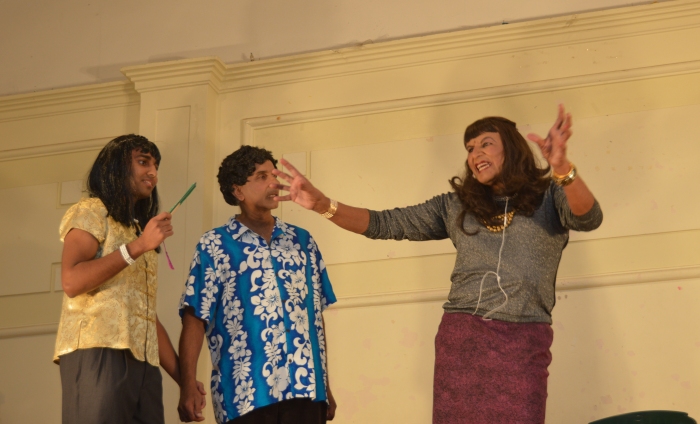
- இவர்களின் ஒப்பனைகள் யாவையும் திருமதி ராதா உருத்திரமூர்தியே செய்திருந்தார். அவரவர் பாத்திரங்களுக்கு ஏற்ற விதத்தில் மிகவும் திறம்பட அவர்களை உரு மாற்றி இருந்தார், ராதா. மொத்தத்தில் கட்டுடை நாடகக் குழுவினரின் காதலா Culture ஆ எனும் நாடகம் எல்லோரும் வயிறு குலுங்கி சிரிக்கும் வகையில் அமைந்திருந்தது. அதனை எழுதிய திருமதி தேவகி கருணாகரனின் அந்த நகைச்சுவை உணர்வைக் கண்டு நான் வியந்து போனேன்.
